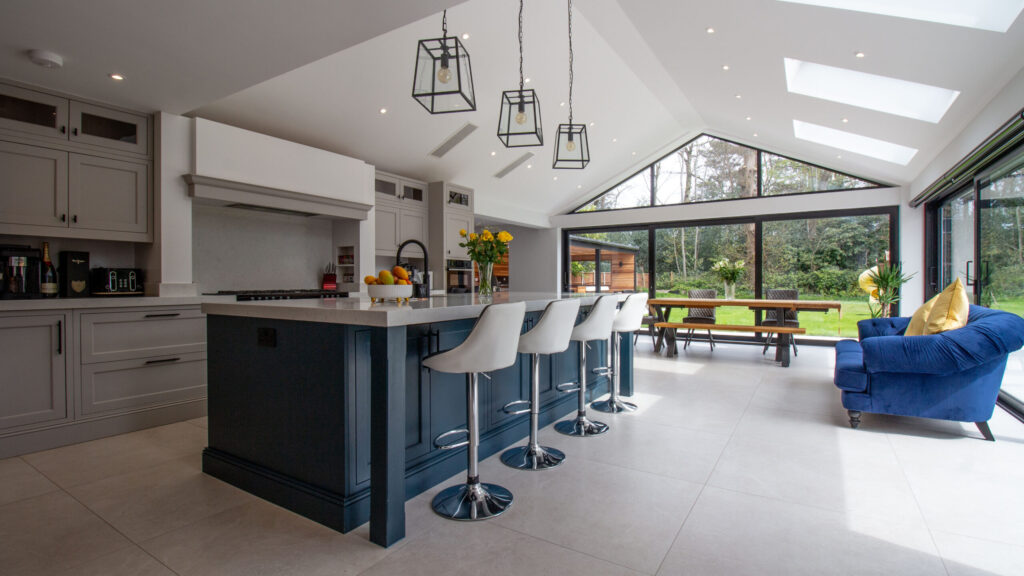Most people don’t think about building regulations until something goes wrong. But every legitimate design and build contractor london operates within a strict framework of rules and standards. These aren’t optional guidelines. They’re legal requirements that exist to protect you. Understanding what design and build companies london must follow, or learning about the quality standards that separate reputable contractors from questionable ones, helps you understand what you’re actually paying for. If you want to know more about how building control approvals work in London, or understand the inspection process that happens during construction, you’ll see why choosing contractors who take these seriously matters. London Design & Build doesn’t view regulations as annoying paperwork. They view them as the foundation of legitimate construction.
Building Regulations Are Not Optional
Let’s get this clear upfront. Building Regulations are mandatory. If you’re doing construction work in London, it needs to comply with Building Regulations. There are no exceptions. There’s no way around it.
Building Regulations cover things like structural safety, fire safety, ventilation, electrical safety, plumbing standards, energy efficiency, and accessibility. They exist because bad construction kills people. Or ruins homes. Or creates safety hazards.
Every design and build services provider in London knows these regulations inside out because they have to. If they don’t, they’re not legitimate contractors. They’re cowboys trying to save money by cutting corners.
A legitimate design and build contractor london will factor Building Regulations compliance into their timeline and budget from the start. They’ll tell you upfront what inspections are needed. They’ll explain what needs to happen at each stage. They won’t act like it’s a hassle. They’ll act like it’s normal because it is.
Planning Permission Versus Building Regulations
People get confused between these two things. They sound related but they’re completely different.
Planning Permission is about whether the local council thinks your project is acceptable for the area. It’s about visual impact. It’s about whether the development fits with the neighborhood. Some projects need it. Some don’t. It depends on what you’re doing and where you are.
Building Regulations is about safety and standards. It’s not about appearance or neighborhood fit. It’s about whether the construction itself is safe and done properly. Almost every construction project needs Building Regulations approval regardless of whether it needs Planning Permission.
A design and build company london needs to understand both. They need to know which one applies to your project. They need to handle the applications. They need to coordinate with the council.
Building Control and The Approval Process
Building Control is the local authority department that enforces Building Regulations. They’re the ones who inspect your work and approve it.
Here’s how it works. Before construction starts, the contractor submits Building Regulation plans. These are detailed technical drawings showing how the work will comply with Regulations. Building Control reviews these plans. They might ask questions. They might require changes. Once they approve the plans, construction can begin.
During construction, Building Control inspects at key stages. Foundations. Structural work. Electrical installations. Plumbing. Final completion. They’re making sure everything is being built according to the approved plans and according to Regulations.
The contractor doesn’t get to decide whether work passes inspection. Building Control does. If something doesn’t comply, it has to be fixed. No shortcuts. No workarounds.
This process takes time and costs money. Good contractors budget for it. Cheap contractors try to avoid it or rush through it, which usually means doing shoddy work.
Material Standards and Specifications
Everything that goes into your home needs to meet certain standards. Electrical cables need to be the right gauge. Plumbing pipes need to be the right material and installed correctly. Insulation needs to meet thermal efficiency standards. Fire rated doors need to actually be fire rated.
This isn’t just about functionality. It’s about safety and longevity. Bad materials fail early. They create hazards. A legitimate design and build contractor london specs materials that meet standards because that’s how you do things properly.
When you see a quote that seems cheap, one reason might be cheap materials that don’t actually meet standards. That’s not a deal. That’s a problem waiting to happen.
Energy Efficiency and Building Standards
Modern Building Regulations require new work to meet energy efficiency standards. This means insulation levels. Window performance. Heating system efficiency. Ventilation standards. These exist because energy waste is a problem and building code tries to address it.
A design and build contractor london knows these standards. They know what insulation thickness is required. They know what window U values need to be. They specify materials and systems that meet these requirements.
This costs money. Cheap contractors might cut back on insulation thickness to save cost. That violates Building Regulations. More importantly, it creates a home that’s expensive to heat and loses energy.
Fire Safety and Structural Requirements
Fire safety regulations cover things like fire rated materials, escape routes, smoke alarms, and fire extinguishers. Structural requirements cover things like load bearing capacity, foundations, and lateral bracing.
These aren’t areas where corners get cut. If the structure fails, people die. If fire safety is inadequate, people die. Building Regulations exist because of lessons learned from disasters.
Design and build services must ensure fire safety and structural integrity. A good contractor takes this seriously.
Accessibility Standards and Inclusive Design
Modern Building Regulations require consideration for accessibility. Doors need to open easily. Stairs need handrails. Bathrooms need to be functional for people with mobility issues.
This isn’t just about following rules. It’s about creating homes that actually work for everyone. A design and build contractor london that understands accessibility creates better homes.
Warranties and Building Control Certification
When Building Control approves your work, you get a Completion Certificate. This certificate proves the work was done to standard. It protects you because future buyers or insurers can verify the work was legitimate.
If a contractor doesn’t go through Building Control, you don’t get this protection. Future buyers might reject the property. Your insurance might be invalid. You could be liable if someone gets hurt.
A legitimate design and build company london will always get Building Control approval. The Completion Certificate protects you.
Common Compliance Issues
Some things trip up contractors regularly. Inadequate ventilation in kitchens and bathrooms. Incorrect electrical sizing. Poor insulation installation. Substandard plumbing connections. Lack of fire stopping in party walls.
Good contractors avoid these problems because they know the Regulations. They plan for them upfront. They catch them during construction before Building Control inspection.
Cheap contractors either don’t know the rules or ignore them hoping nobody notices. That’s a disaster waiting to happen.
Why Standards and Regulations Matter
This all sounds bureaucratic and expensive. It is somewhat expensive. But the alternative is worse.
A home built without proper standards is unsafe. It’ll have problems. It’ll cost more to heat. It might fail inspection when you try to sell. Your insurance might not cover damage because the work wasn’t done to standard.
A home built by design and build contractors london who understand and follow standards is safe. It works properly. It passes inspection. It protects your investment.
That’s why standards matter. They exist for reasons based on real failures and real disasters. Following them isn’t optional. It’s how you build right.



